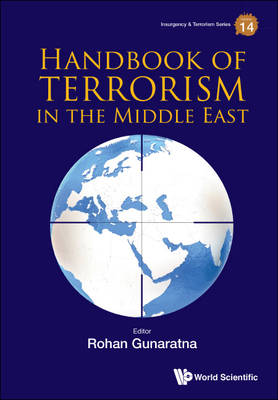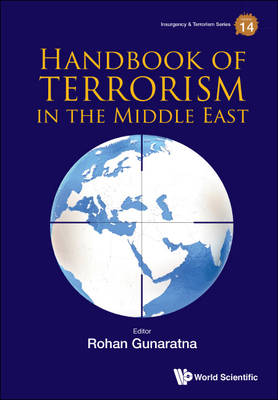
- Afhalen na 1 uur in een winkel met voorraad
- Gratis thuislevering in België vanaf € 30
- Ruim aanbod met 7 miljoen producten
- Afhalen na 1 uur in een winkel met voorraad
- Gratis thuislevering in België vanaf € 30
- Ruim aanbod met 7 miljoen producten
Zoeken
Handbook of Terrorism in the Middle East
€ 180,45
+ 360 punten
Omschrijving
In the Middle East, the world's deadliest organizations, the Islamic State and al Qaeda have firmly established their presence in the Levant and the Gulf. In parallel, state- sponsored Shia threat networks, groups and cells, notably the Lebanese Hezbollah and Houthis operate throughout the Middle East and beyond. Exploiting the conflict zones and their cascading ideologies, both the Sunni and Shia threat entities compete to advance their own interests. Their parent and affiliate entities recruit and radicalise both territorial and diaspora Muslims to fight each other. Unless governments work together to mitigate the threat at the core and the edge, the Middle East and its peripheral territories in Asia and Africa will suffer from terrorism and political violence in the foreseeable future.The response to extremism and its vicious by-product terrorism requires both preventive intelligence-led and pre-emptive community-based security approaches. While developing tactical counter-terrorism capabilities, governments should build strategic capabilities to erode their support bases. The new frontiers in counter-terrorism and extremism -- community engagement and rehabilitation -- should be integrated into government planning. Unless governments take the lead and work with community leaders, societies will be threatened by the existing and emerging wave of ideologically-motivated violence. Government and community leaders should develop whole-of-government and whole-of-nation approaches to dismantle transnational threats. To contain, isolate and eliminate the evolving threat, the Middle Eastern states should shift from security cooperation to collaboration and partnership.
Specificaties
Betrokkenen
- Uitgeverij:
Inhoud
- Aantal bladzijden:
- 328
- Taal:
- Engels
- Reeks:
Eigenschappen
- Productcode (EAN):
- 9789811256875
- Verschijningsdatum:
- 8/08/2022
- Uitvoering:
- Hardcover
- Formaat:
- Genaaid
- Afmetingen:
- 170 mm x 244 mm
- Gewicht:
- 725 g

Alleen bij Standaard Boekhandel
+ 360 punten op je klantenkaart van Standaard Boekhandel
Beoordelingen
We publiceren alleen reviews die voldoen aan de voorwaarden voor reviews. Bekijk onze voorwaarden voor reviews.










